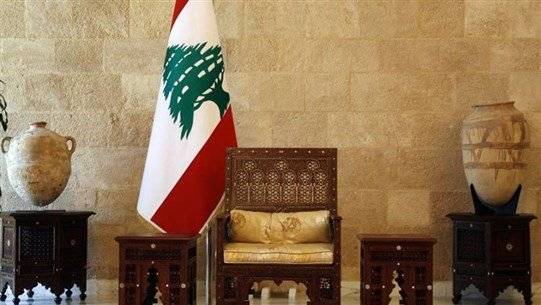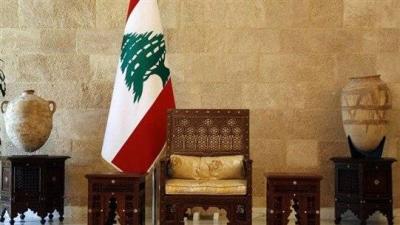Between the "hell" promised by President Michel Aoun and the "mental asylum" that designated Prime Minister Najib Mikati hopes not to reach, the Lebanese are navigating their hopes for safe harbor as the presidential term comes to an end and a new era begins in a few months. But how do independent, opposition, and sovereign deputies approach this crucial event, and has the image of the new president begun to take shape? Independent MP Ghassan Skaff says to "Al Markazia": "In fact, we as a group of independent, reformist, and sovereign MPs are striving to reach an agreement among ourselves in Parliament to unite around a single opinion. We all believe that the person who will undertake the presidency must be a sovereign figure, meaning someone who believes in the continuity and existence of the state." He noted that "contacts are ongoing to choose this personality, and at the same time, we are assessing the inclinations of the other side. Today, names are being proposed and quickly discarded. However, we must wait for two to three weeks, not before mid-August, to see some names materialize; afterward, we will review them and see who we can agree on."
Skaff adds: "In the end, this country belongs to everyone, and there must be a consensus on a certain personality who has integrity, credibility, and the ability to steer the ship during this difficult phase. Therefore, we hope to agree on one name or even two, or we might propose three names, and then whoever can secure the majority will be our choice." He continues: "Many people view the presidential elections as a model for what happened in the election of the Deputy Speaker of Parliament, when I ran for the position, gathered a considerable number of independent votes, received support from major blocs, and garnered 61 votes. Everyone looks at this situation as if what happened was a 'rehearsal' for the presidential elections," considering that "whoever can capture a substantial number of independent votes from the Maronite community can then persuade the parties or major blocs to vote for them. Our goal is to reach 65 votes among the opposition so that we can say this is the beginning of the reformist movement." He affirms that "things were straightforward, and I was able to secure the votes for my election to the deputyship if not for the reasons that everyone knows; I hope this experience does not repeat itself with the presidency."
On the other hand, while waiting for the picture to crystallize, deputies are each trying, in their own way, to propose initiatives that contribute to alleviating the crises faced by the Lebanese. In this context, Skaff reveals that he is preparing a legislative step aimed at protecting and supporting military personnel by proposing a law to establish a financial fund for members of the military and security forces. He indicates that "the situation of military personnel and military and security institutions is not sound. The military constitutes the last pillar upon which the country relies to remain resilient; if it collapses, the entire nation will disintegrate along with the security situation."
Skaff goes on: "While we have military and security institutions, we are beginning to witness the initial signs of their degradation due to the loyalty of the military. Of course, some of them still pledge allegiance to the state, but another part has begun to show loyalty to the individuals they work for. While military law prohibits them from engaging in any work outside the military framework, today the institution turns a blind eye to activities carried out by the army and security forces outside their official duties as a means of protecting the country. We see many employees working in hotels, restaurants, and valet parking from the military, which undermines the military institution and diminishes the soldier's dignity when we see him working at his official job in the morning and then as a valet or in a hotel or any other freelance work in the evening." He continues: "This is why I thought it necessary to look for a specific fund to support military personnel with a monthly financial allowance, and this support should come from somewhere. Thus, I proposed in the law I will present that it should be financed from external sources, from friendly governments and international organizations, rather than being a burden on Lebanese citizens to fund it. I have taken it upon myself to tour countries that could support this fund as soon as it is voted on and approved in Parliament." Skaff concludes: "For the sake of transparency and equitable distribution, I prefer that this fund be managed by the heads of security agencies and that they supervise it and manage its distribution, such as the army commander and directors of internal security, general security, and customs, and it could even be chaired by the army commander."




